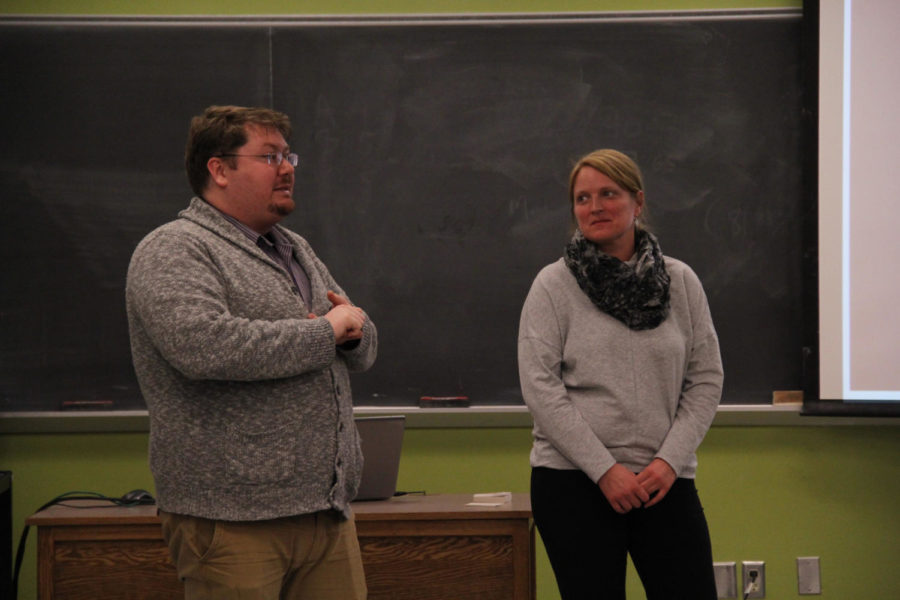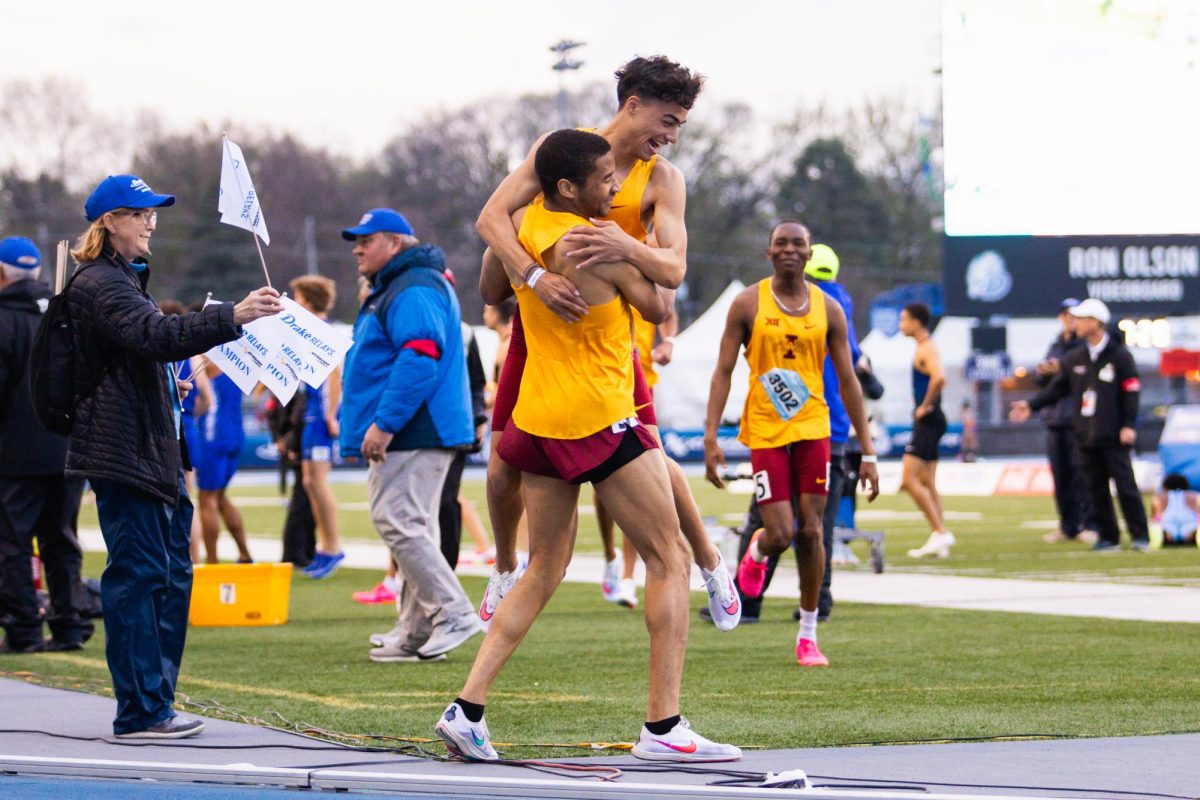Sigma Lambda Beta gives a voice to men about sexual assault
Michael Davis and Carrie Giese, assistant director and program coordinator, respectively, for Student Assistance and Outreach Services, speak at the Next Generation of Manhood presentation Feb. 18 in Carver Hall.
February 19, 2015
The men of Sigma Lambda Beta are calling on the male community to help combat sexual assault.
The chapter presented “The Next Generation of Manhood” to a room full of booming conversation in Carver Hall on Feb. 18.
“There are significantly less males involved in sexual assault prevention work and I really want to increase that,” said Bobby Dennis, prevention specialist at Assault Care Center Extending Shelter and Support. “If half the population isn’t that involved, we aren’t going to do anything.”
After hearing the conversation about sexual assault across campus and through the media, Joel Ibarra, senior in civil engineering and vice president of Sigma Lambda Beta International Fraternity, knew he had to step up and take part.
After Sigma Lambda Beta worked with ACCESS for a few years, the fraternity was able to make connections to host an event.
“I’m always really impressed by a fraternity that takes steps to end sexual violence, or do anything that uses their power for good,” Dennis said.
While Ibarra personally hasn’t been a victim of sexual assault, he said he believes a lot of people are scared to move forward.
“I believe as a male, I have privilege that I don’t have to walk around with my keys in my hand, but I believe that a lot of females don’t have that privilege,” Ibarra said. “I kind of want to step up and engage males in our community, especially the ISU campus to do something about it.”
As told in Dennis’ presentation, during the last few semesters, reports of sexual assaults have increased at Iowa State, creating a need for the conversation. Dennis’ job is to increase this discussion amongs males about sexual violence.
“The more that everybody has that ability to talk to each other when it comes to the attitudes and beliefs that negatively impact sexual violence, the more we’ll be able to prevent sexual violence,” Dennis said.
A moment of silence came during the presentation when Dennis began to talk about bystander intervention and the effectiveness of that strategy.
“It hurts me when I see somebody that was trying to make some positive sense and stop events from happening and really do their part,” Dennis said referring to Cale Truhlsen, an ISU student who was assaulted on Welch Avenue. “It hurts me to see how it came back on him.”
With this, Dennis expressed the importance not to generalize or stereotype groups or genders.
“A vast majority of males aren’t violent,” Dennis said. “A vast majority of males aren’t okay with this going on and a vast majority of males want it to stop.”
Ibarra said he has learned to be aware of what is going on around him.
“Just identifying what sexual assault is, like the sex jokes,” Ibarra said. “That is something that I can confess I might have said something in the past, but I know that is something bad and I can point it out to other people, but I don’t personally do myself.”
Dennis hopes men will take away ownership in the capacity to intervene, to prevent sexual violence and to call out people when they hear negative comments.
While the event was focused on men, women did attend and engage in the discussion.
“I think that women need to take away from this, let’s really think about males as [allies],” Dennis said. “Especially women in the professional world, the reality of men at work and how I engage at work. How do we talk to close males in our lives to help them get involved?”

















